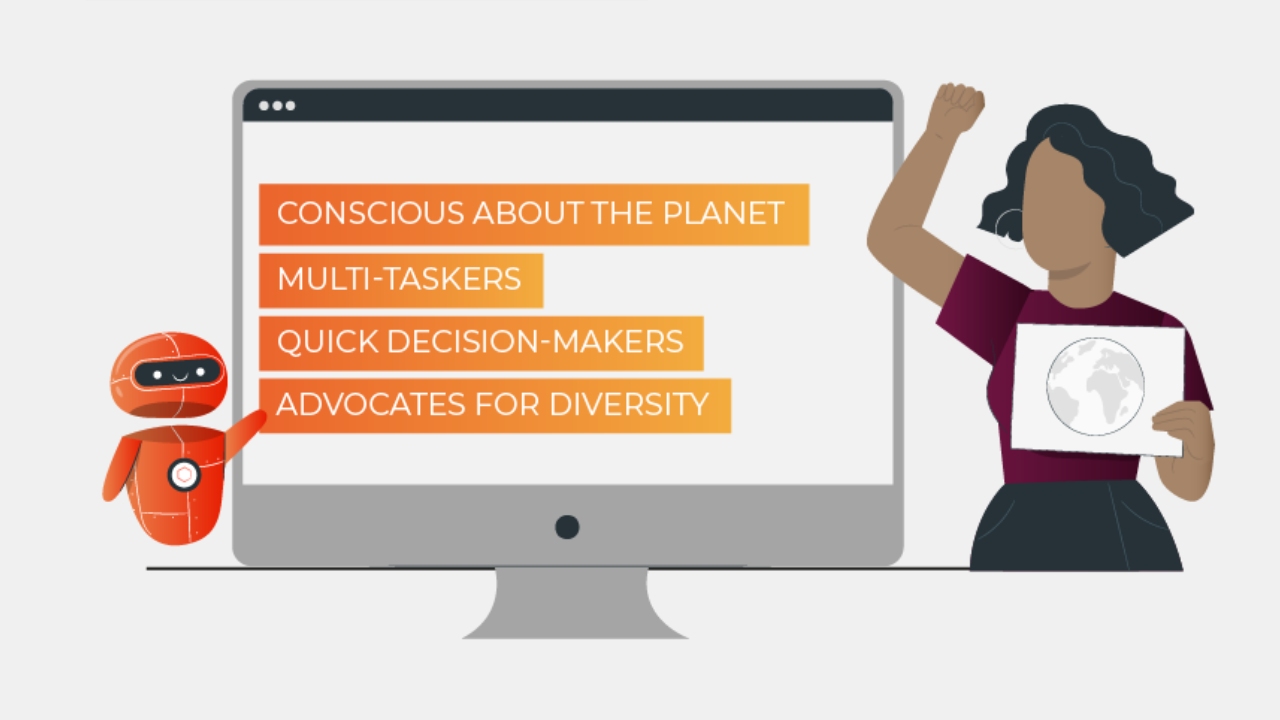If the millennial generation was, in the 2010s, the focus of brands, contracting companies and public institutions, now it’s time to move on to the next generation. Generation Z, or digital natives, will soon be a leading productive force. A force that is the first to be born in a world where the Internet exists.
They have also lived through moments such as the biggest economic crisis to date, the blurring of the lines between the public and private spheres, and the demand for equality, diversity and inclusion in the workplace. And most importantly: the current epidemic situation keeps them ready, but on pause, with, for example, a 40% youth unemployment rate in Spain. But the retirement of the last baby boomers will bring them strongly into the professional landscape. The time has come to make room for them.
All these events affect and will affect, in the short and long term, digital natives. It’s already thought that the disruption of their face-to-face training will require extra effort on the part of employers to prepare them properly. Less structured learning programmes, based on multiple intelligences at work and with more personalised mentoring.
Learning the skills of the workplace is as important to Generation Z as learning how to manage their stress and anxiety. Along with younger millennials, they’re the first to demand attention to their mental health. For companies, addressing this is beneficial for both parties: better talent retention and productivity, while fostering the emotional intelligence and soft skills of a generation that is discovering itself.
As the first to be born ”connected”, centennials are expected to look for jobs in companies whose digitalisation is already well underway. Employers should consider them in order to focus, enhance or complete their digital transformation. This requires building collaborative tools into the DNA of work teams, from social media to artificial intelligence.
According to a survey conducted by Zephoria, the top two signs of success among centennials were “feeling that their life has meaning” and “being in control of their life”. Changing an entire system of professional and personal balance is complex and slow, but introducing certain improvements to ensure the retention of Z talent is more immediate.
Young people are asking for homework that has already been done; we just need to be one step ahead of their demands. Remote working and flexible working hours are the most obvious, but also greater professional space to solve problems themselves. They want to tailor work to their life outside work, as opposed to what they learned from watching their parents, Generation X.
Demanding self-sufficiency doesn’t leave continuous learning aside, as they understand that the world is constantly changing, and that they must change with it. But as mentioned above, they do not need to be taught in a traditional way, nor does learning have to be one-way.
Generation X are currently filling the senior positions in companies. A generational gap of at least 15 years separates them from their younger counterparts. Closing it is a task for both. The first step is mutual understanding: leaders who understand the needs of their employees, employees who understand the motivations of their leaders. Then collaborative learning: the experience of the veterans in the workplace, coupled with the digital experience of the Zs, is a synergy that benefits the company, the professional and the individual.
With Generation Y, their predecessors, they seem to have more in common professionally than other generations. Both are hyper-connected (although centennials a more pragmatical use of technology), who understand the digitalisation of the workplace. They’re entrepreneurial, value self-fulfilment and flexibility in the workplace. Their rapport in the workplace is likely to be the most facilitative on both sides.
Generation Z is determined to prove its worth, in order to earn a place in the productive system. A popular saying goes “actions speak louder than words“, and effort is the only way for young people to prove that they’re ready to earn the changes they’re demanding. And it seems that they are on the right track; it is only a matter of time before being a digital native professional becomes as normalised as it already is for millennials, X and the Boomer generation. A matter of time, and a matter of balance.
